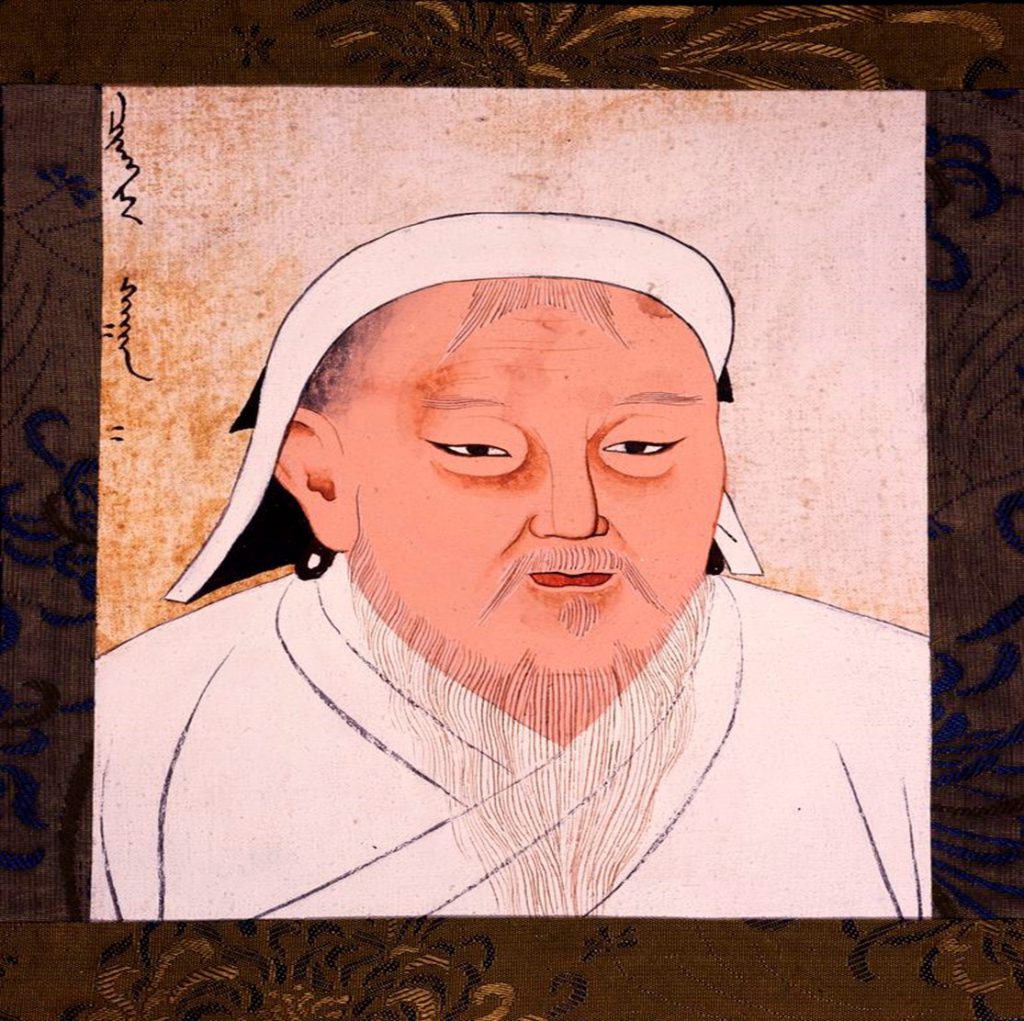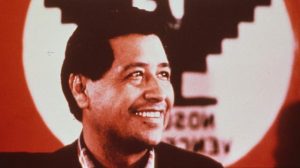Napoléon and Europe, Alexander and Persia, Ashoka and India. All famous conquerors and their conquests, but none compare to the heights reached by Genghis Khan. The Mongolian Empire was the biggest empire of all time. The expansion of the Mongolian Empire began in northern China, which was home to the Xi Xia and the Jin Empires.1 Genghis Khan’s leadership skills were first put to the test in the fierce battles to take over northern China.
Long before Genghis Khan, however, the nomadic peoples of the Asian steppes had invaded northern China for centuries. The peoples of the steppes are known for their constant migration, not for their civilizations. They are peoples who hunt and herd, not grow and harvest. But they are also a people who can be soldiers, knowing well how to attack and to kill.2 Almost every Mongolian learned to ride a horse at a young age, and they learned how to travel and to attack. One scholar has stated that “Babies rode before they could stand. When they grew up, sitting in the saddle was probably more natural to them than walking.”3 These nomadic peoples lacked the wealth and riches that were plentifully found in the more sophisticated civilizations of the river valleys, like that of its neighbor to the south along the Yellow River. For that reason, nomads like the Mongols had been invading northern China for centuries in order to obtain riches they did not have.

It would not be until Genghis Khan had united all the tribes of the eastern Asian steppes that the Mongolians would have their turn at attacking China. Their attacks, however, would not be for mere spoils from their raids, but to conquer the Xi Xia and Jin empires. It was the year 1206 that Genghis Khan became the leader of the tribes of the steppes, after killing his childhood best friend Jamuka, who had opposed his rule for many years. He then consolidated his power, and he imposed on his people two rules: tolerance of other religions, and loyalty.4. This became especially handy when moving into the Xi Xia Empire. Every single troop of his army would lay down his life for the Great Khan because he knew that Temüjin (Genghis Khan) would do the exact same for him.5 Since the Mongols could not attack the Chinese of Xi Xia head on, they needed a plan. That plan would be an attack of the flank on the western side of the Xi Xia. He simply could not just attack the Xi Xia and Jin Empires head on, because they had millions more people. Even though the Mongolians were great fighters after having fought each other for centuries, they would not have a chance against so many people.
Genghis Khan wanted to bring power and wealth to his people, and wealth is what the Chinese had.6 China itself was too large for Genghis Khan to conquer. China was actually three empires: the Xi Xia Empire (or Western Xia), the Jurchen Jin Empire to its east, and the Song Empire to the south. And because the Song was south and east of the other two, it was therefore out of reach for Genghis Khan, at least, for the moment. Genghis Khan had his eye on the wealth that the Xi Xia and the Jin Empires had gained from their controlling of the Silk Road trade routes across Asia. These Silk Roads traded goods from all over Asia and into Europe, and they promised great wealth to whomever controlled them.7 In order for Genghis Khan to conquer the Jin, he first had to conquer the Xi Xia in order to defend his flank on the western side. By securing that flank, he could then better attack the Jin by attacking on two fronts, from the north and from the west. Xi Xia, to the west of the Jin Empire, was just south of the Gobi Desert. In addition, the Xi Xia were a farming and trading people, but also a people of fighters having to constantly fight their larger neighboring empires and other nomadic groups from the steppes. The problem was that the Mongols had never fought against fortified cities, like those of the Xi Xia. This would prove problematic for Genghis Khan, but instead of giving up, he proved why he is the greatest leader in history. The attacks on the Xi Xia Empire would give Genghis Khan and his army the experience they needed in fighting fortified cities.8

The invasions started in 1206. Their purpose was to give the Mongolians a knowledge of the land that they would later be invading for the purpose of conquering. Genghis Khan also wanted to test his men and his number one rule: gain the loyalty of his local tribes. Then, leading the charge across the Gobi desert, Genghis Khan began his main assault on the Xi Xia Empire in the spring of 1209. The Mongols had major problems attacking the city Volohai, which was located on the eastern side of the Xi Xia Empire. They had no experience in fighting large scale battles. For example, in the city of Volohai, the Mongols were unsuccessful in taking over the city with brute force, so they had to implement another strategy.9 Genghis Khan sent the leader of Valohia a message saying that he would abandon the city if the leader of Valohia gave him all of their bird and cats. The leader agreed to the Khan’s offer in order to save his people from even more war with the Mongols. However, Genghis Khan did not keep his word. He had the Mongols tie cotton to the cats’ tails and light them on fire. The scared animals fled back to the city, igniting the town of Volohai on fire. The Mongols scraped up anything salvable, and with that, they had won their first fight against a fortified city.10

The success at Volohai was just the beginning of Genghis Khan’s list of accomplishments, but it was the first time that they had taken a fortified city of that size. That following summer, in 1210, the Mongols raided the entire countryside of the Xi Xia. Genghis Khan quickly moved on to the capital city Ningxia located along the Yellow River. But by the time they reached Ningxia, Genghis Khan had to decide to either continue their assault on Xi Xia, or pack it up because of the approaching winter. Historian Paul Lococo states, “The Mongols built a dam along the Yellow River, hoping to divert the water into the city. But at this time, the Mongols’ engineering skill was poor and the water was diverted to the Mongol encampment rather than the city.”11 Luckily for Genghis Khan, Burkhan Khan, the leader of the Xi Xia who was living at the capital, said to Genghis Khan, “I’ll surrender to you and be like your right hand, giving all my strength to you.” He gave Genghis Khan one of his daughters, Chakha, as a wife, and sent a message with her, saying:
“When we heard tale of what Genghis Khan had done, we were afraid of him. Now that we see him before our city walls, we are afraid of his greatness and power. This fear makes us say, ‘We’ll be your right hand and give all our strength to you.’ But when we say we’ll give you all our strength, remember that we’re a people whose camps don’t move [like those of the Mongols], we’re a people who’ve built city walls. Though we’ll be your allies, when you go off to fight a swift campaign or quick fight, we won’t be able to rush off and fight beside you. But if Genghis Khan will spare us, we Tangut will give him the camels we raise … the woolen clothing and satins we weave, [and] the best of the birds we’ve trained for the hunt.”12

Genghis Khan’s conquering ambitions led him on to attacking the Jin Empire to fulfill his dream of conquering northern China. The Xi Xia Empire secured his flank in order to make a move on the Jin. However the Jin Empire would be the largest empire for Genghis Khan to conquer, populated as it was with millions of people.13 Sadly, he was never able to fulfill that dream, as he died in the year 1227. The Mongolian Empire reached the size of 4,600,000 square miles at the time of Genghis Khan’s death. It would be almost a decade later when the Mongolians finally fulfilled Genghis Khan’ s dream of taking over all of northern China.14
- Don Nardo, Genghis Khan and the Mongol Empire (Detroit, Mich: Lucent books, 2010), 55. ↵
- Don Nardo, Genghis Khan and the Mongol Empire (Detroit, Mich: Lucent books, 2010), 16-18. ↵
- Peter Brent, Genghis Khan: The Rise, Authority, and Decline of Mongol Power (New York: McGraw-Hill, 1976), 29–30. ↵
- Don Nardo, Genghis Khan and the Mongol Empire (Detroit, Mich: Lucent books, 2010), 37-38. ↵
- Don Nardo, Genghis Khan and the Mongol Empire (Detroit, Mich: Lucent books, 2010), 42-43. ↵
- Don Nardo, Genghis Khan and the Mongol Empire (Detroit, Mich: Lucent books, 2010), 54. ↵
- Paul Lococo, Genghis Khan: History’s Greatest Empire Builder (Washington D.C.: Potomac books, 2008), 37. ↵
- Paul Lococo, Genghis Khan: History’s Greatest Empire Builder (Washington D.C.: Potomac books, 2008), 38. ↵
- Paul Lococo, Genghis Khan: History’s Greatest Empire Builder (Washington D.C.: Potomac books, 2008), 38-39. ↵
- Michael Prawdin, The Mongol Empire: Its Rise and Legacy (New York:Free Press, 1967), 108. ↵
- Paul Lococo, Genghis Khan: History’s Greatest Empire Builder (Washington D.C.: Potomac books, 2008), 39-40. ↵
- Paul Khan, The Secret History of the Mongols (San Francisco: North Point Press, 1984), 148-49. ↵
- Paul Lococo, Genghis Khan : History’s Greatest Empire Builder (Washington D.C.: Potomac books, 2008), 40-41. ↵
- Paul Lococo, Genghis Khan : History’s Greatest Empire Builder (Washington D.C.: Potomac books, 2008), 49. ↵



21 comments
Abigail Delarosa
It was a very informative article. I enjoyed reading and learning more about Gehghis Khan and his powerful empire. I am going to write my end of semester paper over Genghis Kahn so I wante to gain as much information on him as possible and after reading this article it has expanded my knowledge more. Great use of sources and way to keep the flow of the story it was very intersting and I enjoyed reading your article. Good job.
Santos Mencio
An incredibly interesting article about the early years of Genghis Khan’s conquests. Genghis was clearly an incredibly clever commander, able to outsmart opponents that had several advantages over him. I’m sure his tolerance of others’ beliefs played a large part in helping him maintain control over such vast swaths of territory. By not imposing himself on those he conquered they were in turn less inclined to engage in open rebellion.
Grace Frey
This was a really interesting article. Genghis Khan is a familiar name to many, but I wasn’t familiar with the specifics of his conquests in relation to China. I was aware of the complications that his conquests cost Afghanistan, prolonging even further their independence, which ultimately has shaped their current state as an LDC. It was really interesting to read not only about the specifics of the conquest, but also some of the context and Chinese perspective as well. Like Raul, I was also left thinking about all the difficulties that China has encountered and was also wondering what the country would have looked like in a world in which they didn’t have to face outside pressure and conflict.
Raul Colunga
Great article about a truly unique nation. I think this shows just how many difficulties China had faced throughout its history. Many obstacles like Mongols to the north that disrupted their progression as a nation. Not only that but political instability which caused internal disputes. Had China not gone through as many difficulties, I wonder how much more powerful they would be today.
Santos Mencio
As someone who has limited knowledge of Genghis Khan and his conquests, this was an incredibly informative article. The differences between Genghis and his predecessors in fascinating. The strategies and tactics he used during his conquest are also interesting. Genghis clearly demonstrated a very high level of creative thinking, being able to outsmart his enemies even in situations that were clearly stacked against him.
Trenton Boudreaux
A very well written article. While I was aware that Genghis Khan was a tactical genius, I was never fully able to consider that he was a good leader as well, allowing for religious freedom in his empire. It’s interesting how he was able to think outside of the box and burn down an entire city just using birds and cats.
Paula Salinas Gonzalez
I really liked how this article was written. I didn’t really know much about Genghis Khan or much information about China’s history. I think that their history is really impressive, especially with how much they were able to accomplish and how much they influenced East Asia.
Ian Mcewen
For a conqueror Genghis Khan had a tolerant view of religion and people shouldn’t be punished for their beliefs. While he was tolerate of other religions he demanded absolute loyalty and betraying that loyalty would lead to immediate death of those who betrayed and their close friends and family. The empire made by the Khan was the largest empire in the history of man and most of it was conquered under one man.
Elliot Avigael
I really loved hearing about Genghis Khan. Not only was he absolutely ruthless in his methods, he was a cunning military leader. It was also very informative to hear a bit of the Chinese perspective in your article as well.
I’ve discovered a lot of parallels between the Mongols and the Vikings–both leaving in inhospitable regions of the world and Hell bent on seeking plunder and conquest. I always find fascinating how the more “undeveloped” societies of the ancient world, whether they were pirate peasants or nomad farmers, end up being some of the most infamous and powerful.
Alexandria Garcia
Khan was my 7th grade History Teachers favorite figure from the past. This was a very well organized article. The Mongols were definitely savages when it came to conquest in Asia.